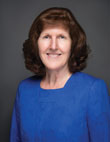Nurses
Target Audience: RN, APRN, PA, PHYSICIANS
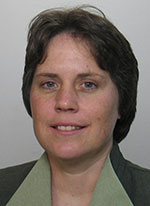 Instructor: Holly Gadd, PhD, FNP-BC
Instructor: Holly Gadd, PhD, FNP-BC
Holly Gadd is the graduate program coordinator for the School of Nursing at Southern Adventist University. As a professor of nursing, she teaches primary care courses for nurse practitioner students. She additionally works regularly as a nurse practitioner in family practice, the emergency room, and at Volunteers in Medicine – Chattanooga. Click here for Curriculum Vitae.
Presentation title: Pay attention! Perspectives on ADHD in the Adult
Course description: This session will examine the current understanding of brain physiology and ADHD. Impact of ADHD on adult functioning will be examined through case studies and interactive assessments. Evidence-based pharmacologic and alternative treatment modalities will be presented.
Course objectives: At the conclusion of the lecture the participant will be able to:
- Describe the epidemiology and pathophysiologic factors of ADHD in adults
- Review assessment tools for adult ADHD and clinical presentations
- Examine cases of adult ADHD, noting physiologic, psychosocial, and spiritual impact of the disorder
- Compare research evidence for traditional and alternative treatment options in adult ADHD
References:
Click here for reference list
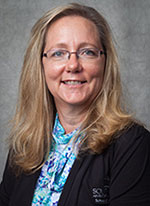 Instructor: Frances Johnson, DNP, NNP-BC
Instructor: Frances Johnson, DNP, NNP-BC
Frances Johnson has always worked with babies during her career as a nurse – either in the normal newborn arena, or in the neonatal intensive care unit. She is a graduate of Southern, and has earned her Neonatal Nurse Practitioner and DNP at Rush University in Chicago, IL. She currently serves as a professor of nursing at Southern Adventist University and teaches courses in research, theory, ethics, and epidemiology. Clinically, she works as a Neonatal Nurse Practitioner with Pediatrix Medical Group and has worked many long nights serving this vulnerable population. Thus, her interest in sleep, an essential element in maintaining wholeness, which is often short changed by busy healthcare providers. Click here for Curriculum Vitae.
Presentation title: Winkin’, Blinkin’, and Nod: The Neurophysiology of Sleep
Course description: Have you ever worked the night shift? As healthcare providers, most of us have at some point in our career. The Staff Nurse Fatigue and Patient Safety Study reports that about 20% of the nurses in their study reported falling asleep while on duty, and 54% struggle to stay awake while driving home. Come and review the neuroscience of sleep and find ways to improve your time of rest.
Course objectives: At the conclusion of the lecture the participant will be able to:
- Review the neuroscience of sleep and the role it plays in well-being.
- Identify three benefits of sleep.
- List three factors known to disturb sleep.
- Analyze the implications of sleep deprivation on health and work.
- Describe current evidence based strategies that improve sleepquality.
References:
Click here for reference list
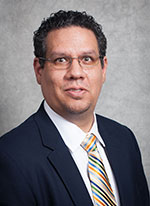 Instructor: Michael Liedke, DNP, ACNP-BC
Instructor: Michael Liedke, DNP, ACNP-BC
Michael Liedke is a professor of the School of Nursing at Southern Adventist University. Michael A. Liedke is an acute care nurse practitioner and has worked in critical care and neurosurgery for 15 years. He completed his RN and BSN degrees from Southern Adventist University, his Acute Care Nurse Practitioner/MSN from Emory University, and most recently his Doctor of Nursing Practice with a focus on neurocritical care and neurophysiology from University of Alabama at Birmingham. He currently serves as an Assistant Professor for Southern Adventist University in the graduate and doctoral programs as well as Midlevel Coordinator and provider with the neurosurgery group in Chattanooga. Click here for Curriculum Vitae.
Presentation title: Neurophysiologic Benefits of Worship
Course description: Romans 12:1, 2 urges the believer to present their body and mind to God as the true and proper worship. Advances in neuroimaging and the understanding of neurophysiology are beginning to demonstrate the powerful benefits of worship to the mind and body. This course will focus on identifying and understanding the neurophysiological benefits of worship and its far reaching effects into the mind and body of the participant. It will also focus on worship styles which, because of their effect on the brain, have a potential for misuse.
Course objectives: At the conclusion of the lecture the participant will be able to:
- Identify the neuroanatomical structures involved with worship.
- Understand the neurophysiological/physiologic benefits of actively engaging in worship.
- Understand how worship helps to attenuate stress.
- Understand the differences between traditional Judeo-Christian worship and meditation related to beneficial effects.
- Identify ways to maximize and prolong the beneficial effects of worship.
Reference List:
Click here for reference list
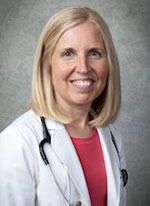 Instructor: Lilly Tryon, DNP, APN, FNP-BC
Instructor: Lilly Tryon, DNP, APN, FNP-BC
Lilly Tryon is a family nurse practitioner who is passionate about helping people live the healthiest lives possible. As a professor of nursing at Southern Adventist University, she teaches graduate nursing courses in health promotion, nutrition, exercise, and health coaching. Lilly has a Doctorate of Nursing Practice with a focus on lifestyle therapeutics, and holds national certificates in lifestyle medicine, health coaching, plant-based nutrition, and exercise physiology. Click here for Curriculum Vitae.
Presentation title: Building A Healthy Brain: Emerging Perspectives on Resilience
Course description: In our ever-changing, fast-paced, and turbulent world, effective ways to reduce stress and increase resilience has become imperative for people from all walks of life, ages, professions, and socioeconomic backgrounds. This seminar reviews the key brain areas and circuitries involved in resilient responses to stress and explores factors that contribute to the development of resilience. Emphasis is placed on evidence-based strategies and Biblical principles for building a stress-resilient brain.
Course objectives: At the conclusion of the lecture the participant will be able to:
- Discuss the latest findings in the neuroscience of resilience.
- Describe the role of psychological resilience and positive emotions in the stress process.
- Identify factors that contribute to the development of resilience.
- Examine evidence-based strategies and Biblical principles for building a stress-resilient brain.
Reference List:
Click here for reference list
Accreditation Statement: (6 Hours)
All nursing activities submitted to the Tennessee Nurses Association for approval to award 6 contact hours. The Tennessee Nurses Association is an accredited approver of continuing nursing education by the American Nurses Credentialing Center’s Commission on Accreditation.



